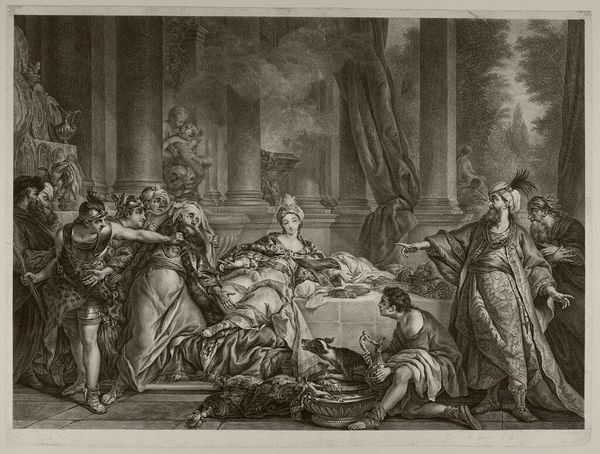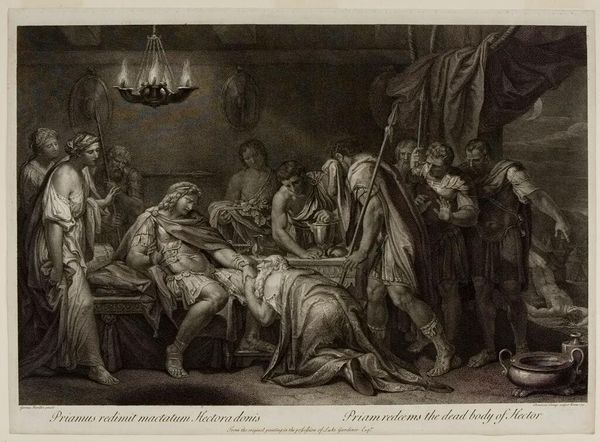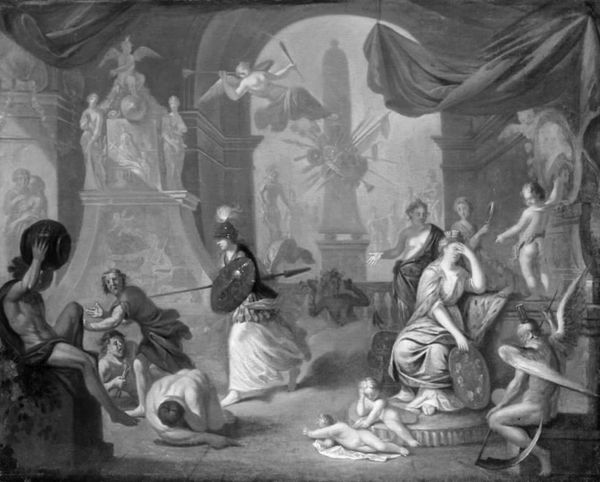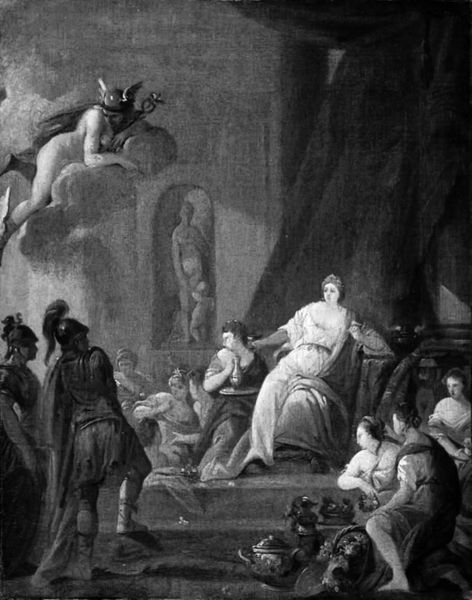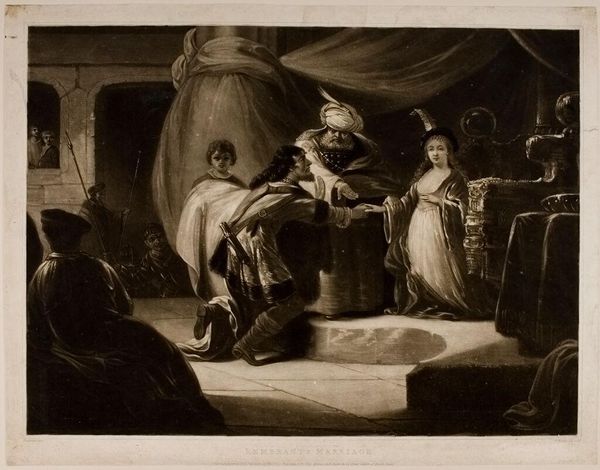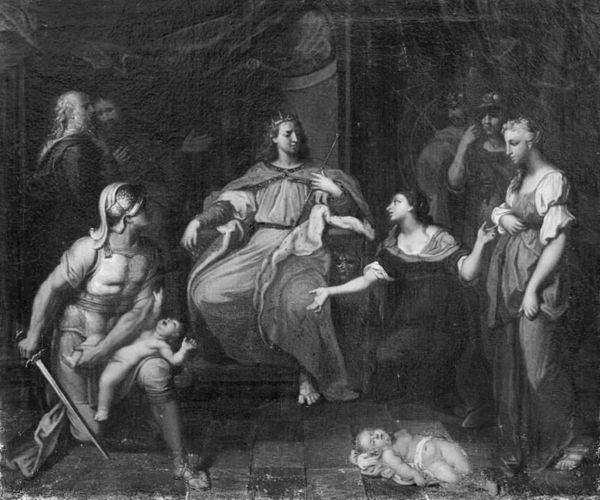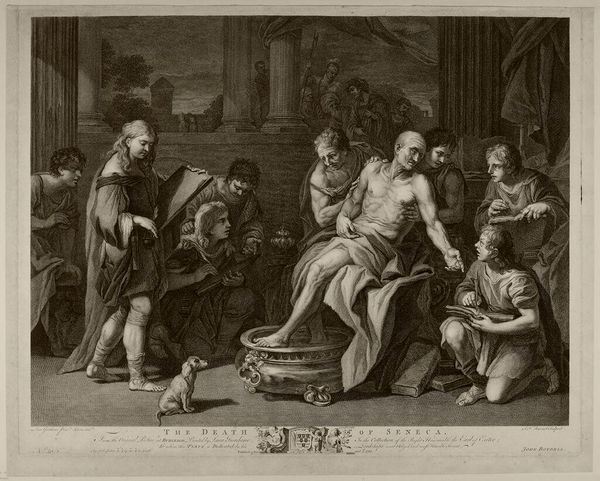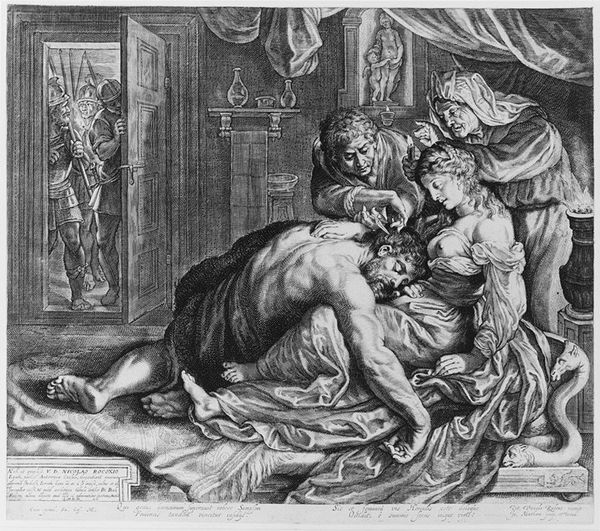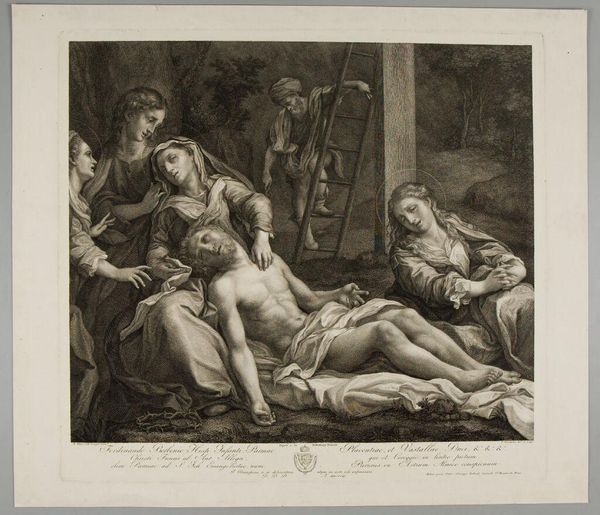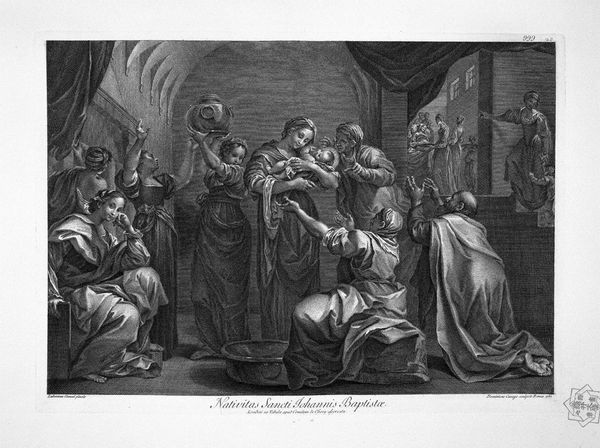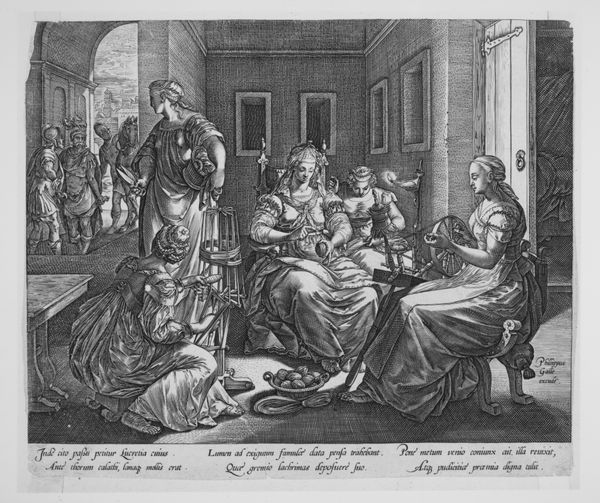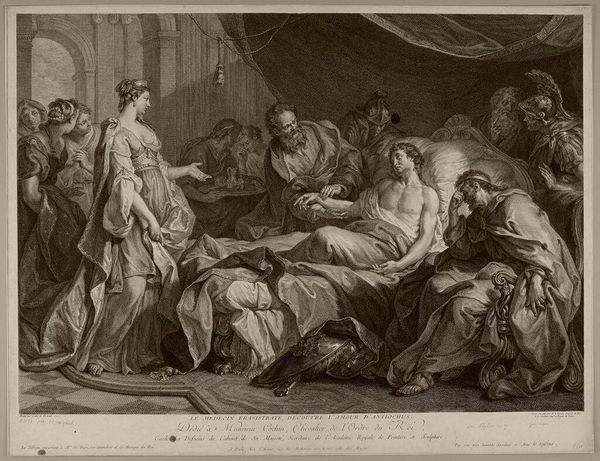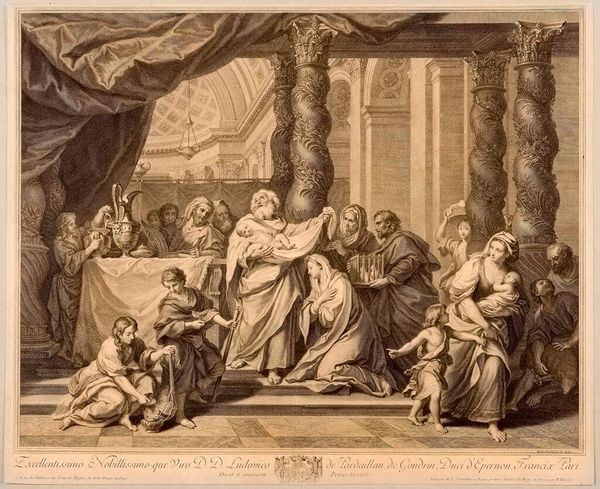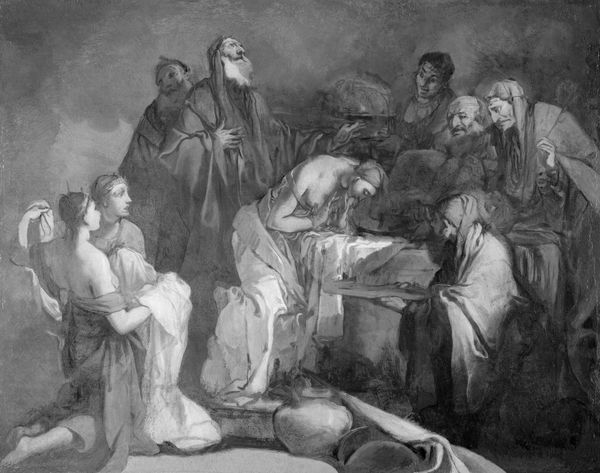
Dimensions: Image: 43.5 Ã 60.4 cm (17 1/8 Ã 23 3/4 in.) Sheet: 45.1 Ã 61.1 cm (17 3/4 Ã 24 1/16 in.)
Copyright: CC0 1.0
Curator: Jacques Firmin Beauvarlet's "The Fainting of Esther" captivates with its dramatic composition. Editor: The sheer distress is palpable. The composition seems meticulously designed to amplify Esther's vulnerability. Curator: Indeed. As a printmaker, Beauvarlet skillfully uses the engraving process to render the scene's textures, from the rich fabrics to the imposing architecture. Consider the labor involved in creating such detail. Editor: Precisely. And in thinking about that labor, one can't help but consider the power dynamics at play in this biblical narrative. Esther, a Jewish woman, risks her life to advocate for her people. Her fainting becomes a powerful symbol of resistance and female agency, challenging patriarchal structures within the court. Curator: Certainly, the materiality and the means of production directly affect our interpretation of the subject. The printmaking enabled wider dissemination of this narrative. Editor: Absolutely. Looking at "The Fainting of Esther" reminds us how art can reflect and challenge societal norms and power structures. Curator: I agree. The printmaking process and the subject come together beautifully. Editor: A moment suspended, pregnant with potential.
Comments
No comments
Be the first to comment and join the conversation on the ultimate creative platform.
